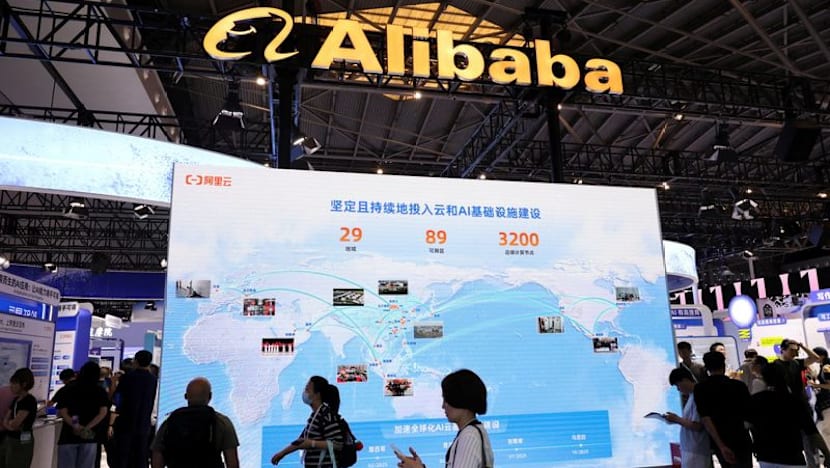Top Stories
Alibaba and Baidu Transition to In-House Chips for AI Training

Chinese technology leaders Alibaba and Baidu have initiated the use of their own custom-designed chips for training artificial intelligence (AI) models. This strategic shift aims to decrease reliance on Nvidia chips, which have been the industry standard for AI training. The development was reported by The Information on March 15, 2023, citing four sources familiar with the matter.
This move signifies a broader trend within the Chinese tech industry to develop self-sufficient capabilities in AI hardware. By creating proprietary chips, both companies seek to enhance performance while also addressing supply chain vulnerabilities that have affected the availability of Nvidia’s products.
Shift Towards Self-Reliance
The transition comes amidst increasing competition in the AI sector, where the demand for powerful computing resources has surged. Alibaba and Baidu are responding to this challenge by investing in their own chip designs, which could potentially lead to improved efficiency and cost savings in the long run.
Nvidia has long dominated the market with its graphics processing units (GPUs), which are critical for training complex AI models. However, the recent geopolitical tensions and supply chain disruptions have prompted major tech firms to reconsider their dependencies on foreign technology. By developing in-house chips, these Chinese companies not only aim to reduce costs but also to bolster their technological sovereignty.
The decision to move away from Nvidia chips also reflects a growing trend among tech companies worldwide to invest in custom semiconductor solutions. Alibaba‘s and Baidu‘s initiatives could inspire other firms in the region to follow suit, further accelerating the development of local chip manufacturing capabilities.
Implications for the AI Landscape
This shift in strategy could have significant implications for the global AI landscape. As more companies develop proprietary chips, the competition is likely to intensify, driving innovation and potentially lowering costs for AI training. The success of Alibaba and Baidu in this area may encourage additional investments in semiconductor research and development across the Chinese tech sector.
Moreover, the advancement of in-house chip technology could enhance the capabilities of AI applications across various industries. Both companies have been at the forefront of AI research and development, and this new hardware could enable them to push the boundaries of what is possible in machine learning and data processing.
As the technology landscape continues to evolve, the actions of Alibaba and Baidu will be closely watched by industry analysts and competitors alike. Their ability to successfully implement these changes could serve as a blueprint for other firms aiming to strengthen their positions in the rapidly-growing AI market.
-

 World5 months ago
World5 months agoSouth Korea’s Foreign Minister Cho Hyun to Visit China This Week
-

 Business5 months ago
Business5 months agoStarling Bank Plans Secondary Share Sale, Targeting $5.4 Billion Valuation
-

 Top Stories5 months ago
Top Stories5 months agoMunsang College Celebrates 100 Years with Grand Ceremony
-

 World5 months ago
World5 months agoPAS Aims to Expand Parliamentary Influence in Upcoming Election
-

 Business7 months ago
Business7 months agoKenvue Dismisses CEO Thibaut Mongon as Strategic Review Advances
-

 Lifestyle6 months ago
Lifestyle6 months agoHumanism Camp Engages 250 Youths in Summer Fest 2025
-

 Sports6 months ago
Sports6 months agoDe Minaur Triumphs at Washington Open After Thrilling Comeback
-

 Sports7 months ago
Sports7 months agoTupou and Daugunu Join First Nations Squad for Lions Clash
-

 Top Stories7 months ago
Top Stories7 months agoColombian Senator Miguel Uribe Shows Signs of Recovery After Attack
-

 World7 months ago
World7 months agoASEAN Gears Up for Historic Joint Meeting of Foreign and Economic Ministers
-

 Health6 months ago
Health6 months agoNew Study Challenges Assumptions About Aging and Inflammation
-

 Business7 months ago
Business7 months agoOil Prices Surge Following New EU Sanctions on Russia









